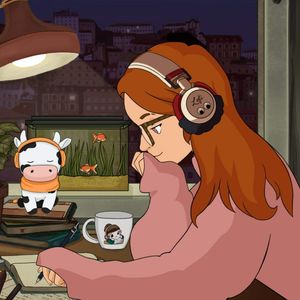“Though it might be nice to imagine there once was a time when man lived in harmony with nature, it’s not clear that he ever really did.” - Elizabeth Kolbert, The Sixth Extinction
I recently finished Elizabeth Kolbert’s book, The Sixth Extinction, and it has provoked a tangle of thoughts and feelings that I’ll try to decipher here. In the above, Kolbert was finishing her chapter on the extinction of the megafauna in the Pleistocene. Mammoths, saber-tooth cats, giant sloths, cave bears, the wooly rhino: all were victims to an extinction that erased a world unfamiliar to us today. There have been many suggested causes, but one gaining increasing traction is us. Statistical models project that even with minimal hunting, population growth of humans and low birth rates of large mammals would cause extinction in only a few thousand years. The change would be so slow that the humans responsible for it would not even be able to perceive it happening.
I think what I find so compelling about Kolbert’s statement here is that it truly hammers home that the myth of a protean man giving back to nature as much as he took is just that: a myth. I have always liked to think that at some point in our history we lived in balance with the Earth, perhaps during those early days of Eden when homo sapiens was newly evolved. This thought was a comfort to me when juxtaposed with the excess and waste of our modern way of life. But it seems that according to Kolbert, and a growing pile of evidence, we've never actually learned how to take care of our home properly. Have we always been at odds with nature? And what does that say about our place in the world as natural beings?
My first introduction to environmentalism was in Genesis. I still remember it clearly from my purple children's Bible: God giving Adam the responsibility to care for the Garden of Eden, followed by a brightly colored illustration of Adam surrounded by animals as he named them. That Eve had not been included in this didn’t bother me at the time, I interpreted this to mean that essentially the world was humanity's to safeguard. A sacred duty, if you will. While many other aspects of Christianity have fallen away in my life, this one still remains. As beings who, as Kolbert says, "have the capacity to change and destroy the world," we have a responsibility to preserve it. Or maybe at the very least not fuck it up too badly.
This reflection isn't meant to function as a traditional review, but I will say that I can't recommend The Sixth Extinction enough. This book is as heartbreaking as it is compelling - the Pulitzer Prize was well-deserved in my opinion. Each chapter is an ode to its chosen topics, a varied selection of unique and wonderful things that perhaps are all the more beautiful because they are now disappearing if not already gone. Whether you look at Kolbert’s essays on bats, corals, or glaciers, we can observe our path of destruction across the globe. This is a painful reminder of what our way of life is doing to our home. But even more abstractly painful is my suspicion that even if given the option to live a completely balanced life (which may not even be possible), I would find it extremely hard to sacrifice some of my own comforts towards this end.
Kolbert doesn't leave you down in the dumps, however, and hopefully my thoughts won't leave you there either because it is important to have hope to continue moving forward. While The Sixth Extinction details the tragic stories of species on the edge, it also captures the humans going to incredible lengths to save them. Reading about running a frog hotel in the Amazon, creating banks of DNA samples, or giving a rhino an ultrasound, makes it clear that a lot of people have put in Herculean amounts of effort to save what we can. I think that the notion of individual responsibility in this area is an illusion pushed by the real culprits of the majority of environmental degradation (big companies, etc.), but it is still inspiring to read about what we as individuals can do.
As for me, I plan on finding environmental causes that I can donate time or money to, and using my voice and my vote when I can. I have no illusions that will be enough on its own, but then at least I'll know I've done my best with what I have.
If you're interested in reading The Sixth Extinction and supporting the podcast further, buy a copy from our Bookshop Store! If you want to keep up with more posts like this, consider following or subscribing to our Buy Me A Coffee.
